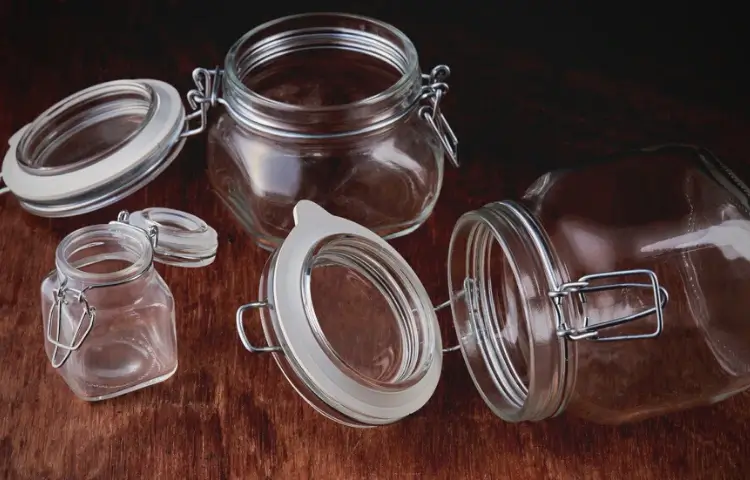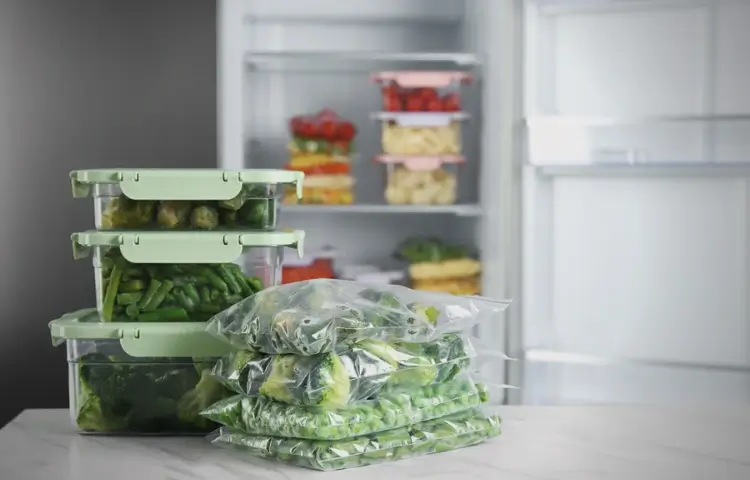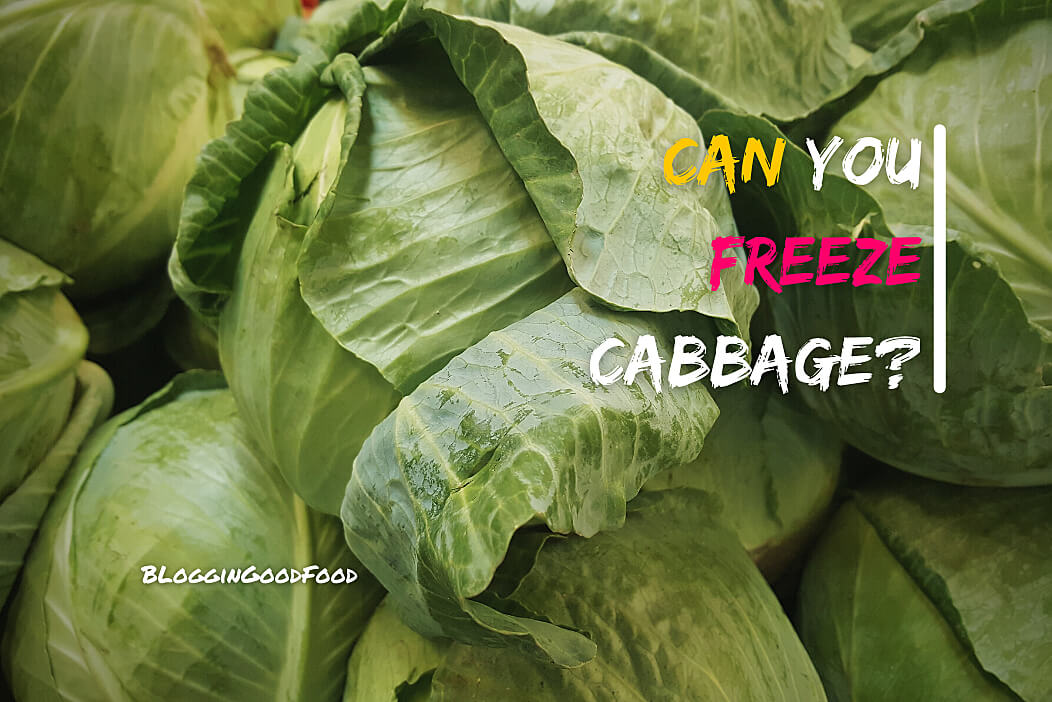Cabbage is an excellent item to keep on hand in the crisper drawer of your refrigerator. In anything from salads and pickled veggies to heartier stews and braises benefit from this vegetable’s high vitamin content and hardiness. Cabbage is an excellent all-purpose vegetable since it has a wonderfully crisp texture while fresh that transforms into a silky richness when cooked.
Despite its versatility, cabbage is a common element in many dishes. It is a standout ingredient in coleslaw, but it may also be used in soups and casseroles, and it can even be used as a bread alternative. However, it is only picked once a year, during the autumn season. To get genuinely fresh cabbage, it’s a good idea to freeze some while it’s still in season.
Fortunately, this is one of the most versatile vegetables for freezing. Fresh cabbage may be preserved just as readily as blanched cabbage or even a completely cooked cabbage meal, and the process is the same. This guide will teach you how to freeze cabbage so that you’ll always have a crisp vegetable on hand to use in soups, stews, and other dishes.
Table of Contents
Is It Possible to Freeze Cabbage?
“Yes, it is completely possible to freeze cabbage,” says the expert. You can easily freeze cabbage raw or blanched to increase the shelf life of the vegetable by following a few simple tips and methods that are available online.
It doesn’t matter if you want your cabbage to have the nicest texture or the longest shelf life possible; this article will explain the many methods of freezing cabbage to ensure the best outcomes for your recipes.
How to Freeze Cabbage?

Step 1: Choose the most appropriate cabbage. If the food is of low quality, to begin with, freezing will do little to improve the situation. Choose cabbage with bright green leaves that are firm to the touch. A cabbage with yellow or limp leaves, or black areas, is in distress!
Step 2: Make sure your cabbage is clean. Field fresh is wonderful, but did you know that there is so much more to be found in fields?
Step 3: Prepare your cabbage. Cabbage that has been frozen is excellent. A large circular frozen ball, on the other hand, is difficult to keep. While separating your cabbage, you will save time by not thawing the entire item when cooking it. Oh, and here’s a pro tip: Keep the stem connected for now. It will help to keep the leaves together in a pleasing manner.
Step 4: Prepare your cabbage by blanching it. Start by bringing a big pot of water to a roaring boil and dropping your cabbage wedges into it (carefully). Allow them to boil for around two to three minutes.
Step 5: Place your cabbage in a large bowl of ice-cold water. We are preventing the cabbage from boiling before it is needed in this manner.
Step 6: Remove extra water from the cabbage by shaking it vigorously and then dry using paper towels.
Step 7: Individual freezer bags should be used to store your cabbage wedges, which should be placed in the freezer.
Step 8: The cabbage will keep well in the freezer for around six to eight months after being frozen.
How to Freeze Chopped Cabbage?
- You can freeze chopped cabbage, but a few processes must be completed before the cabbage may be frozen.
- If it is still fresh, peel away the cabbage leaves and immerse them in a big saucepan of ice water for half an hour to thoroughly wash them.
- Remove the cabbage from the pan and dry it before chopping it into pieces or wedges. Preferably, you must now blanch the cabbage, but it is acceptable to freeze chopped cabbage by putting the chunks in zip-lock bags and keeping them in the freezer for up to three months.
Things to Consider Before Freezing Cabbage:
Before you freeze cabbages, there are a few things you should know about them. First and foremost, you must take good care of your cabbage; it is a food that is simple to care for and has a long shelf life in the refrigerator as well as a long shelf life in the freezer.
Ensure to use an Airtight Container:

It makes no difference if your cabbage is chopped, whole, or diced; what matters is that you keep your cabbage in an airtight container to avoid bacterial development.
To keep cabbage airtight: there are several methods you can use: cling wrap, vacuum sealing, food wraps (there are organic wrap choices available if you want to go the eco-friendly route), and cling film (make sure there are very few tears or gaps).
Refrigeration:

While cabbage will normally survive up to five days in the refrigerator, it is best to freeze it if you intend to store it for an extended period.
If you have purchased your cabbage in bulk, freezing it is an excellent alternative because it will preserve your cabbages fresher for a longer time.
In the refrigerator, make sure your cabbage is well wrapped and stored in a drawer or a cold and crisp location; it is normally ideal to have a shelf in your fridge devoted to vegetables, either halfway down or at the base of your fridge so that you can easily find it when you need it.
The cabbage can be stored for a total of seven days in the refrigerator, although most people believe it will last around five days in the refrigerator.
When using your cabbage, make sure to remove the outer leaves carefully, much as you would when removing the end tip of a cucumber from the end. It isn’t hazardous; nevertheless, it will not taste as fresh as the remainder of your cabbage because it has been stored improperly.
How to Defrost Frozen Cabbage?
Now that we’ve addressed the question of “can you freeze cabbage,” let’s talk about the best way to defrost that cabbage when you’re ready to utilize it. The refrigerator is the most effective method of thawing any frozen vegetable, and particularly frozen cabbage. You’ll have defrosted cabbage if you follow these procedures!
- Make a bowl or a plate out of the frozen cabbage you want to use. Get the required quantity cabbage.
- Place the dish in your refrigerator and wrap it with plastic wrap.
- Allow the cabbage to remain in the refrigerator until thawed before preparing it.
- According to your frozen cabbage’s size, this might take up to two days to complete.
- Please remove all of the extra liquid from the thawed cabbage and set it aside. Depending on your recipe, use it as needed!
Running frozen goods under cold running water will help them thaw faster. If you are using cabbage, especially boiled cabbage, I do not advocate doing this since you run the danger of breaking down the vegetable as it thaws.
If necessary, you may defrost the cabbage in the microwave using the scheduled defrost setting, but it is preferable to let the cabbage thaw gradually in the refrigerator.
How Do I Use Frozen Cabbage?

Assuming you prepared the cabbage properly before freezing it, there is no difference between what you could do with frozen cabbage and what you could do with it before it was frozen.
Some meals, such as cabbage rolls and coleslaw, are necessary to defrost the cabbage completely before using it. Still, frozen cabbage may be put immediately into the pot for many recipes.
It is totally up to you to prepare after that, with anything from stews to smoothies being an option. The fact that cabbage can be used in so many different ways makes it one of the most diverse foods on the planet.
Frequently Asked Questions:
Is it possible to freeze cooked cabbage?
Unless it has been left for around two hours at room temperature or temperatures between 40 and 140 degrees Fahrenheit, cooked cabbage may be frozen without affecting its flavor or nutritional value.
What is the best way to keep cabbage?
It is possible to keep cabbage fresh on your countertop for up to 2 days after purchasing it at the grocery store. If you want to store it for a little while longer but aren’t interested in freezing the vegetable, the best option is to keep it refrigerated until you are ready to use it.
Is it possible to freeze fresh cabbage?
Yes! Fresh cabbage may be easily preserved without the need for blanching or boiling. You may freeze it in various shapes and sizes, including shredded, half, quartered, and whole. Be aware that bigger chunks of cabbage may take longer to thaw and will not have the same crisp as they had when first cooked from frozen.
How long can I store my cabbage in the freezer?
In general, you can freeze blanched cabbage for approximately 10 months in a regular freezer; but, if you’re using a deep freeze and airbag, you may store it for up to fourteen months in a regular freezer.
Wrapping it Up:
Cabbages are nutritious and healthful vegetables that are also highly adaptable; they make an excellent addition to any diet and can be prepared in various ways. They are popular worldwide, and they are a staple dish in many nations.
We hope you enjoyed our article on whether or not cabbage can be frozen. Our experience is that freezing cabbage is an excellent approach to save money if you are unable to consume the entire batch before it goes bad. Similarly, freezing cabbage is an excellent technique to ensure that you have cabbage on hand all year long. We hope you found this blog article to be of assistance.







